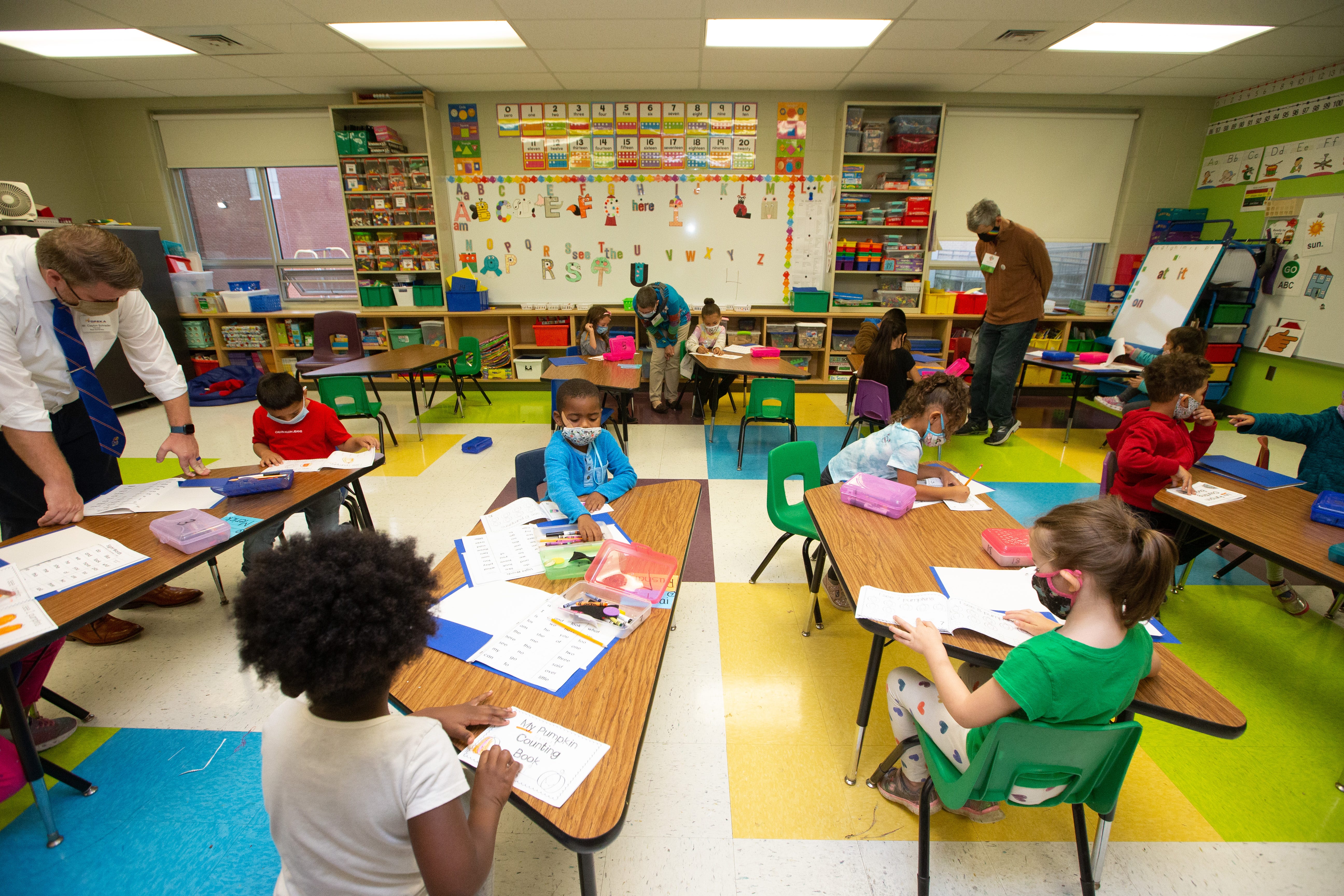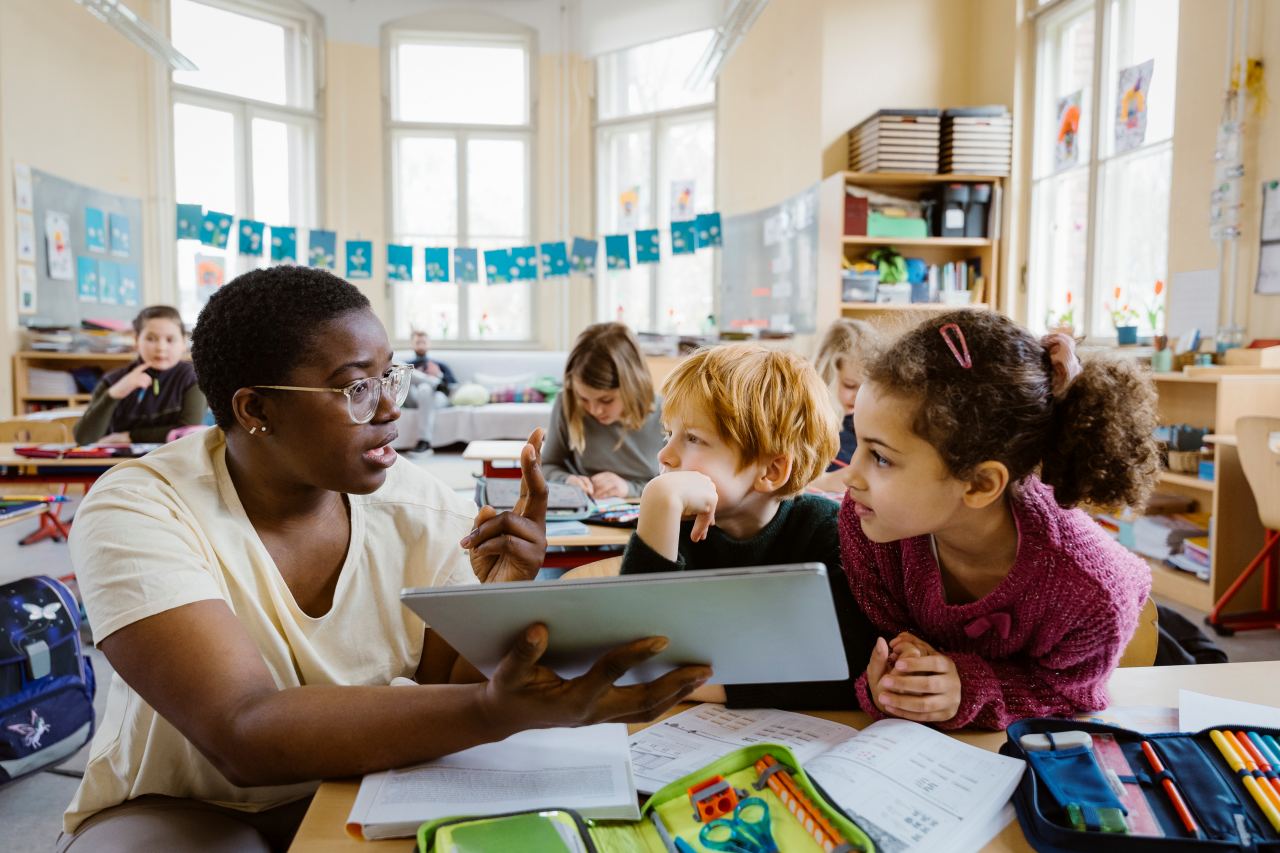Discover the Best Primary Science Tuition Singapore for Your Learning Journey
Discover the Best Primary Science Tuition Singapore for Your Learning Journey
Blog Article
Exploring the Various Training Approaches in Main Scientific Research Education And Learning Today
The landscape of primary scientific research education is developing, with various mentor strategies gaining prestige in modern classrooms. Inquiry-based learning, hands-on experiments, and the integration of modern technology are redefining how instructors involve young minds. Additionally, collaborative techniques and set apart guideline are being employed to accommodate the varied demands of students, boosting both interaction and understanding. As we examine these techniques, questions emerge regarding their performance and the effects for future instructional techniques. What might these shifts in strategy mean for the next generation of students?
Inquiry-Based Understanding
Inquiry-Based Understanding (IBL) is an instructional approach that urges trainees to discover scientific principles via doubting, examination, and hands-on testing. This approach highlights the role of pupils as active participants in their knowing, advertising essential thinking and problem-solving skills. By involving with real-world concerns, trainees become determined and curious, which improves their understanding of clinical principles.
In IBL, educators serve as facilitators, directing students as they navigate their questions as opposed to providing information straight. This student-centered approach allows for distinction, suiting numerous discovering paces and styles. Pupils create abilities in formulating hypotheses, designing experiments, and examining information, which are important for scientific proficiency.
Additionally, IBL fosters cooperation amongst students, encouraging them to share concepts and findings. This collective questions promotes social skills and a sense of neighborhood within the class. Furthermore, the process of inquiry motivates resilience, as trainees discover to accept failing as a stepping rock toward understanding.
Hands-On Experiments
Hands-on experiments are a vital element of effective science education and learning, enhancing the principles of inquiry-based understanding. These experiments enable pupils to engage directly with scientific concepts, promoting a deeper understanding with experiential knowing. By adjusting materials and observing outcomes, young learners can realize abstract theories in concrete means.
Such activities promote essential thinking and problem-solving abilities, as trainees hypothesize results, conduct experiments, and examine results. This procedure motivates them to ask questions, refine their understanding, and develop a clinical frame of mind. Additionally, hands-on experiments can be tailored to varied discovering styles, making sure that all students have the opportunity to involve meaningfully with the web content.
In addition, hands-on experiments often motivate partnership amongst peers, advertising teamwork and interaction skills. Operating in teams allows pupils to share concepts, discuss findings, and pick up from one another, which improves their overall educational experience.
Incorporating hands-on experiments into the primary science curriculum not just enhances the finding out atmosphere however also grows a long-lasting rate of interest in science. By proactively joining their education and learning, trainees are much more most likely to establish an interest for clinical questions that expands beyond the class.

Technology Integration
Integrating modern technology right into key scientific research education has come to be significantly necessary in fostering trainee involvement and boosting discovering outcomes. The usage of digital tools, such as interactive simulations, virtual laboratories, and educational software program, provides trainees with chances to discover scientific ideas in ingenious ways. These sources facilitate a deeper understanding of intricate subjects by permitting learners to visualize and adjust variables that would certainly be impractical in a conventional class setting.
Moreover, modern technology assimilation urges individualized learning experiences. Students can proceed at their very own pace, taking another look at challenging principles via multimedia resources, which satisfy various understanding styles. This adaptability not only supports individual growth but additionally cultivates a sense of autonomy in students.
Furthermore, technology acts as a bridge to real-world scientific research, linking trainees with present study and professional payments. Access to on the internet databases and scientific journals widens students' viewpoints on her explanation clinical query and promotes vital assuming skills.
Collaborative Discovering
Collective learning plays an essential function in main scientific research education and learning by cultivating teamwork and communication abilities amongst trainees. This strategy motivates learners to work together, share understanding, and involve in analytical, which boosts their understanding of scientific concepts. By participating in group tasks, students learn to express their ideas, listen to varied viewpoints, and discuss remedies, all of which are essential abilities in both academic and real-world contexts.

Study indicates that joint learning can cause raised inspiration and engagement in scientific research topics, as students find enjoyment in shared experiences (primary science tuition Singapore). In addition, this strategy prepares pupils for future collective ventures, outfitting them with the skills needed for reliable team effort in college and expert settings. Eventually, embracing collective discovering in key scientific research education can substantially improve the learning experience and promote a much deeper understanding of scientific inquiry
Distinguished Instruction

Set apart direction can manifest in different ways, such as varying the content, procedures, or products of understanding. Teachers might make use of tiered tasks that give differing degrees of intricacy, enabling pupils to work at their respective readiness levels. Furthermore, flexible grouping methods can promote cooperation among students check my source with various abilities, promoting peer learning.
Analysis plays a critical duty in this technique, as it notifies instruction and helps teachers comprehend each student's one-of-a-kind needs. Formative analyses, such as monitorings and quizzes, can guide teachers in readjusting their strategies to boost discovering end results. primary science tuition Singapore. Eventually, by implementing differentiated direction in primary science education and learning, teachers can cultivate a much more efficient and equitable discovering atmosphere, equipping all trainees to reach their full potential in understanding clinical phenomena
Final Thought
In recap, the varied training techniques in key scientific research education, including inquiry-based discovering, hands-on experiments, technology combination, collective discovering, and distinguished direction, jointly add to a more reliable learning atmosphere. These techniques advertise crucial reasoning, problem-solving abilities, and a deeper comprehension of clinical concepts. By applying these strategies, teachers can create appealing and encouraging classrooms that address the different requirements of students, inevitably fostering a long-lasting passion in science and boosting academic achievement.
Inquiry-Based Knowing (IBL) is a pedagogical technique that urges trainees to explore clinical concepts via doubting, investigation, and hands-on experimentation.Collective knowing plays an important role in main scientific research education by fostering synergy and interaction skills amongst pupils.Study suggests that collaborative discovering can lead to enhanced inspiration and interaction in science topics, as trainees find pleasure in shared experiences.In fostering a comprehensive knowing atmosphere, distinguished direction emerges as an essential approach to accommodate the diverse demands and abilities of pupils in primary scientific research education and learning. Inevitably, by implementing separated instruction in main scientific research education and learning, educators can cultivate an extra reliable and equitable understanding atmosphere, equipping all students to reach their full potential in recognizing clinical sensations.
Report this page